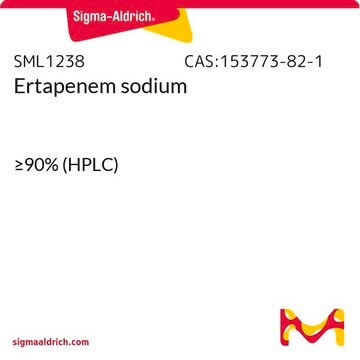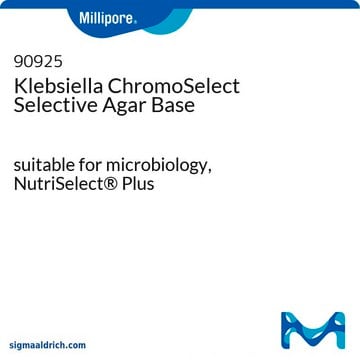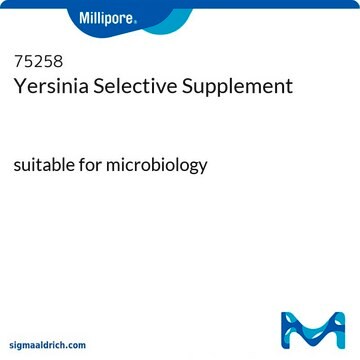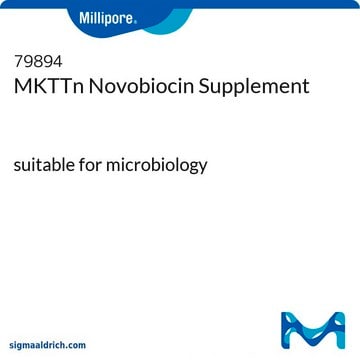C8145
Cefsulodin sodium salt hydrate
third-generation cephalosporin antibiotic
Sinónimos:
7-(D-α-Sulfophenylacetamido)ceph-3-em-3-(4′-carbamoylpyridinium)methyl-4-carboxylate sodium salt
About This Item
Productos recomendados
form
powder or crystals
antibiotic activity spectrum
Gram-negative bacteria
Gram-positive bacteria
mode of action
cell wall synthesis | interferes
storage temp.
2-8°C
SMILES string
[Na+].NC(=O)c1cc[n+](CC2=C(N3[C@H](SC2)[C@H](NC(=O)[C@@H](c4ccccc4)S([O-])(=O)=O)C3=O)C([O-])=O)cc1
InChI
1S/C22H20N4O8S2.Na/c23-18(27)13-6-8-25(9-7-13)10-14-11-35-21-15(20(29)26(21)16(14)22(30)31)24-19(28)17(36(32,33)34)12-4-2-1-3-5-12;/h1-9,15,17,21H,10-11H2,(H4-,23,24,27,28,30,31,32,33,34);/q;+1/p-1/t15-,17-,21-;/m1./s1
InChI key
REACMANCWHKJSM-DWBVFMGKSA-M
Categorías relacionadas
General description
Application
Biochem/physiol Actions
Other Notes
Storage Class
11 - Combustible Solids
wgk_germany
WGK 3
flash_point_f
Not applicable
flash_point_c
Not applicable
ppe
dust mask type N95 (US), Eyeshields, Faceshields, Gloves
Certificados de análisis (COA)
Busque Certificados de análisis (COA) introduciendo el número de lote del producto. Los números de lote se encuentran en la etiqueta del producto después de las palabras «Lot» o «Batch»
¿Ya tiene este producto?
Encuentre la documentación para los productos que ha comprado recientemente en la Biblioteca de documentos.
Los clientes también vieron
Nuestro equipo de científicos tiene experiencia en todas las áreas de investigación: Ciencias de la vida, Ciencia de los materiales, Síntesis química, Cromatografía, Analítica y muchas otras.
Póngase en contacto con el Servicio técnico











